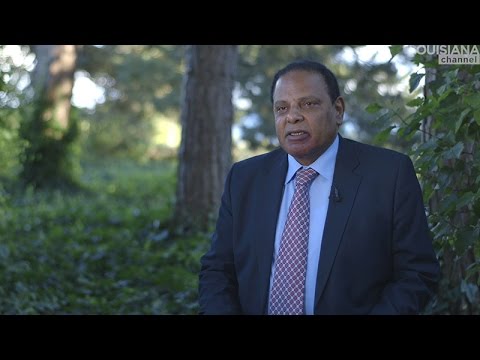
“You will always have this conflict between what you want to say, and what you could say.” Watch Egyptian novelist Alaa al-Aswany on how writing is about overcoming obstacles, and the significance a blank page can potentially have in Egypt.
The blank page not only presents the idea of what should be written, but also what is hidden. In Egypt, leaving a blank page, or blank space, is a symbol of objection – a silent way of confronting censorship. As an example, a writer or columnist can leave a blank space instead of their column as a way of showing that they’re not allowed to express their honest opinion.
Alaa al-Aswany (b. 1957 in Cairo, Egypt) is one of the Middle East’s most popular novelists and Egypt’s biggest selling. His second novel ‘The Yacoubian Building’, which is an ironic depiction of modern Egyptian society, was published in 2002 and quickly gained national as well as international recognition, not least due to its straightforward depiction of (homosexual) sexuality and avid corruption. In 2013, al-Aswany published his third novel ‘The Automobile Club of Egypt’. Moreover, he still works as a dentist.
Alaa al-Aswany was interviewed by Kasper Bech Dyg in connection to the Louisiana Literature festival at the Louisiana Museum of Modern Art, Denmark in August 2014.
Camera: Klaus Elmer, Simon Weyhe and Nikolaj Jungersen
Produced and edited by: Kasper Bech Dyg
Copyright: Louisiana Channel, Louisiana Museum of Modern Art, 2015
Supported by Nordea-fonden
source